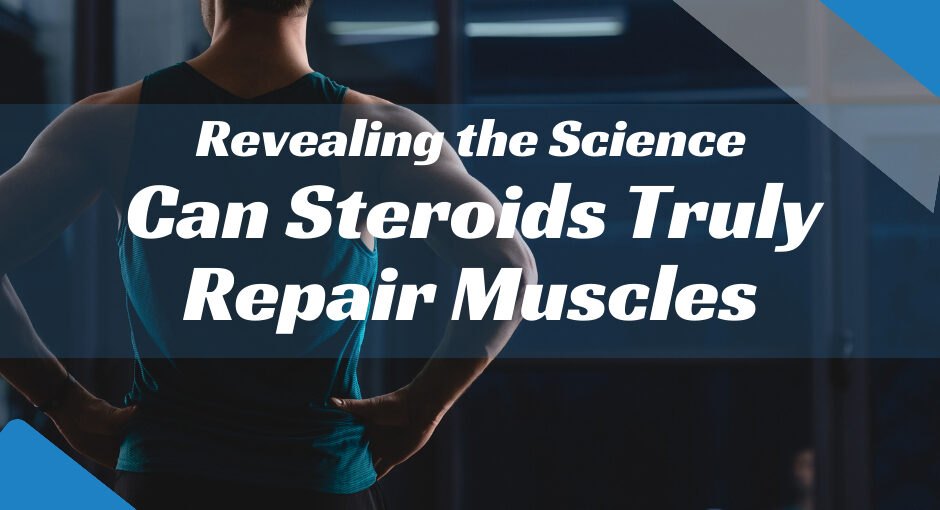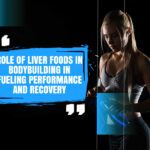Understanding Steroids and Muscle Repair
Steroids, particularly anabolic steroids, are often discussed when it comes to muscle repair. When you hear the question, “Do steroids repair muscles,” the answer isn’t straightforward. Steroids can significantly affect muscle recovery and growth. They work by altering gene expression and muscle cell function, leading to increased protein synthesis.
Consider using steroids for their potential to enhance muscle repair, especially following injury or excessive strain. Clinical studies have shown that steroids can promote muscle healing, especially in controlled doses. For instance, glucocorticoid steroids have been found to speed recovery in muscle injuries when administered weekly rather than daily.
However, it’s crucial to understand both the benefits and risks. While steroids may help in muscle repair and regeneration, improper use can lead to serious side effects. It’s essential to approach this topic with a balanced perspective and seek professional medical advice before considering steroid use for muscle recovery.
Effects of steroids on muscle recovery and growth
When considering “do steroids repair muscles,” it’s essential to understand their impact on muscle recovery and growth. Anabolic steroids accelerate protein synthesis, which directly enhances muscle growth. By increasing the rate at which your muscles repair themselves following intense workouts, you may notice quicker gains in strength and size.
Steroids also reduce muscle damage induced by strenuous activities by boosting your body’s natural healing processes. You’ll experience reduced inflammation, allowing for a faster return to training. However, it’s important to remember that not all benefits are scientifically proven for every individual. Animal studies have shown mixed results when looking at steroid use for muscle recovery.
Despite the potential advantages, there are risks involved. Misuse can lead to severe health issues, including hormonal imbalances and cardiovascular problems. Ensure you weigh these factors carefully and consult a medical professional before considering steroid use for muscle repair.
Mechanisms of Muscle Repair and Regeneration
When exploring the question, “Do steroids repair muscles,” it’s crucial to understand the fundamental mechanisms of muscle repair. Muscle injury triggers an intricate healing process, including inflammation, repair, and regeneration. Initially, immune cells like macrophages clear the damaged tissue, setting the stage for recovery.
Following this cleanup, satellite cells, specialized stem cells in muscles, activate and proliferate. These cells play a crucial role in muscle regeneration by fusing to existing muscle fibers, thereby repairing and enlarging them. Growth factors and cytokines are secreted to promote tissue repair and muscle growth further.
Mechanical stress from exercise induces changes at the molecular level, altering protein synthesis and gene expression. This chain of events helps your muscles adapt and grow stronger over time. Steroids might accelerate some aspects of this process by enhancing protein synthesis and reducing inflammation. However, their long-term effects are still a subject of ongoing research.
Understanding these natural regenerative processes provides insight into how steroids might influence muscle recovery and growth.
How Steroids may influence muscle regeneration
Steroids may accelerate muscle regeneration through various mechanisms. They enhance protein synthesis, allowing muscles to repair and grow faster. It is particularly evident when combined with resistance training.
Steroids modulate the body’s hormonal balance and increase testosterone levels. Elevated testosterone supports muscle hypertrophy, allowing muscles to recover and gain size. Furthermore, steroids can reduce inflammation, which typically accompanies muscle injuries. It means quicker recovery time and less downtime between workouts.
Additionally, steroids stimulate satellite cells. These cells play a pivotal role in muscle repair by fusing with damaged muscle fibers. Enhanced satellite cell activity results in more efficient muscle regeneration.
However, it’s imperative to approach this subject with caution. While steroids can expedite muscle recovery, they also come with significant risks and potential side effects. Always consult healthcare professionals before considering their use.
Scientific Studies on Steroids and Muscle Healing
Researchers have long debated the question: do steroids repair muscles? Various scientific studies have shed light on this topic. A pivotal study conducted at Yale University School of Medicine concluded that anabolic steroids could significantly improve muscle repair and aid in healing muscle contusion injuries. This research indicates that anabolic steroids can accelerate muscle regeneration by enhancing protein synthesis and reducing inflammation.
Furthermore, another study found that these substances support muscle recovery and increase pain tolerance, enabling more intensive rehabilitation. However, it is crucial to note that these benefits come with risks. Misuse of anabolic steroids can lead to severe health complications, including hormonal imbalances and cardiovascular issues.
While steroids offer remarkable advantages in muscle repair, careful consideration and medical supervision are essential. This ensures that you can maximize benefits while mitigating potential risks.
Research findings on steroids and muscle repair
Scientific research has provided compelling insights into whether steroids repair muscles. A study conducted at Yale University School of Medicine demonstrated that anabolic steroids can significantly accelerate muscle healing. Scientists found that steroids increased the speed of muscle repair and enhanced muscle regeneration by improving protein synthesis.
In another experiment, researchers administered steroids to mice with muscle injuries. The results were remarkable. The mice receiving steroids showed faster recovery and improved muscle performance. This study highlighted the potential of steroids in accelerating muscle regeneration.
Additionally, further research has indicated that anabolic steroids may aid in the recovery of atrophic muscles after delayed nerve repair. These findings underscore the beneficial role of steroids when used under medical supervision.
However, while the science supports these benefits, it’s crucial to consider the risks. Misuse can lead to severe health complications. Therefore, you should always consult a healthcare professional before considering steroids for muscle repair.
Potential benefits and risks of using steroids for muscle recovery
Steroids are used for muscle recovery, and their benefits and risks must be weighed. When asking, “Do steroids repair muscles?” it’s important to note they’re significant potential. Steroids can accelerate muscle healing, enhance muscle growth, and improve overall recovery speed after injuries. It can particularly benefit athletes in strength-dependent sports like weightlifting or football.
However, potential risks cannot be ignored. Misuse of anabolic steroids may lead to severe health issues such as liver damage, cardiovascular disorders, and hormonal imbalances. Additionally, reliance on steroids can sometimes mask the root cause of muscle injury, leading to a false sense of recovery and potentially more significant damage in the long term.
Proper medical supervision when using steroids is crucial. Always consult a healthcare professional to mitigate risks while maximizing benefits. Understanding both sides lets you decide whether steroids suit your muscle recovery needs.
Common Misconceptions about Steroids and Muscle Repair
You might have heard people claim that steroids are a magic solution for muscle injuries. The idea that steroids repair muscles instantly is widespread but not entirely accurate. Steroids can expedite muscle recovery, yet they aren’t a guaranteed fix for all types of muscle damage.
Another common myth is that using steroids eliminates the need for proper rest and physical therapy. Your body still requires time and proper care to heal fully. Steroids might mask the pain, making you think you’re better when you’re not.
It’s also believed that all forms of steroids are the same. This misconception can lead to improper use and serious health issues. Each type of steroid serves a different purpose, and what works for one person might not work for another.
Clarifying these misconceptions helps you understand that while steroids can play a role in muscle recovery, they are not a cure-all. Always consult medical professionals for personalized advice.
Clarifying the differences between steroids and other muscle recovery methods
Do steroids repair muscles? This question often arises when comparing different muscle recovery methods. Steroids can accelerate muscle growth and recovery by increasing protein synthesis. However, rest, proper nutrition, and physical therapy are essential for comprehensive recovery.
Rest allows your muscles to heal naturally. Adequate sleep and reduced physical activity can significantly aid muscle recovery without any risks associated with steroid use.
Nutrition plays a crucial role as well. A balanced diet of proteins, vitamins, and minerals can support muscle repair. Foods like lean meats, eggs, and nuts provide the necessary nutrients for muscle regeneration.
Physical therapy and exercises help in rebuilding strength and flexibility. Techniques like massage and stretching can alleviate muscle stiffness and pain.
While steroids may offer quick results, a holistic approach combining rest, nutrition, and physical therapy ensures safer and more sustainable muscle recovery. Always consult healthcare professionals when considering any recovery methods.
Conclusion
In answering the question, “Do steroids repair muscles,” it’s clear that steroids can facilitate muscle regeneration under specific conditions. Weekly doses of steroids like prednisone show promising results in speeding up muscle recovery. However, it would help if you weighed the benefits against the potential risks.
Steroids may accelerate muscle growth, but they have side effects that can compromise health. Proper rest, balanced nutrition, and physical therapy offer safer and more sustainable methods for muscle repair.
Understanding how steroids influence muscle recovery is crucial when considering them as a treatment option. Always consult healthcare professionals to make informed decisions tailored to your unique needs. Your health and well-being should be the priority in your recovery journey.






